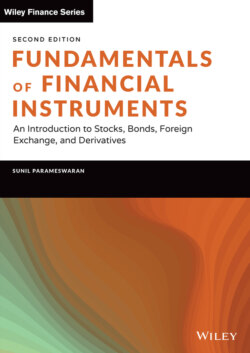Читать книгу Fundamentals of Financial Instruments - Sunil K. Parameswaran - Страница 54
На сайте Литреса книга снята с продажи.
GLOBALIZATION OF EQUITY MARKETS
ОглавлениеCompared to debt markets, equity markets have been relatively slow to globalize. However, the winds of change are blowing across the world and markets are increasingly becoming modernized as well as integrated. The doctrine of LPG – Liberalization, Privatization, and Globalization – is gaining currency across the world. New developments in communications technology, coupled with deregulatory changes, and greater awareness of the benefits of international portfolio diversification on the part of investors, have led to rapid integration of equity markets in recent years. Some of the major deregulatory measures in the past two decades are the following:
On 1st May 1975, the United States abolished fixed brokerage commissions.
In 1985 the Tokyo Stock Exchange started admitting foreign brokerage firms as members.
In 1986 the London Stock Exchange (LSE) eliminated fixed brokerage commissions and began admitting foreign brokerage houses as full members. This event is known as the “big bang” in financial circles. These changes were designed to give London an open and competitive international market. Until the end of World War II, London was the center of global financial activity. For obvious reasons, the center of postwar economic activities moved across the Atlantic to New York. London is, however, critical for global financial activities, for it lies in an ideal time zone. The city is located in between the capital markets of North America and those of Singapore and Tokyo. Consequently, it is the middle link for what is effectively a 24-hour market.
In 1987, financial institutions in London were permitted to participate in both commercial and investment banking.
In 1999 the Glass-Steagall Act, which sought to segregate commercial and investment banking activities in the United States, was repealed. The Act was a product of the Great Depression and sought to insulate commercial banks from the vagaries of the stock market. Once this Act was enacted, institutions were given a clear choice. Either they could accept deposits and make loans, or they could provide underwriting and broker-dealer services. Thus, US institutions in the business of deposit taking and loan making were precluded from trading and market making in securities. For instance, Morgan Stanley was formed as a splinter from JP Morgan. While JP Morgan continued as a commercial bank, Morgan Stanley went into the areas of securities dealing and investment banking. In 1999 the Financial Services Modernization Act, known as the Gramm-Leach-Bliley Act, did away with this restriction and paved the way for giant financial conglomerates who could undertake both investment banking as well as commercial banking activities.
